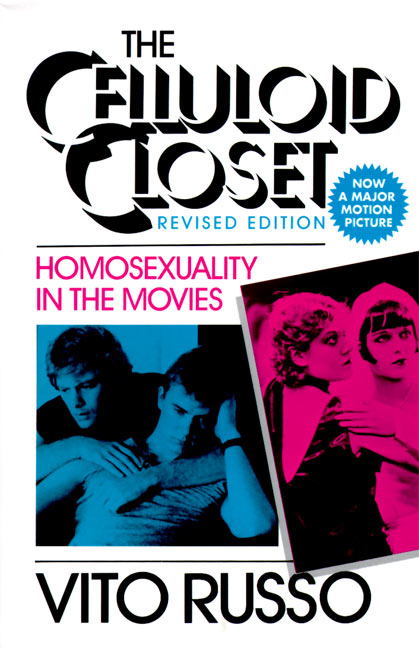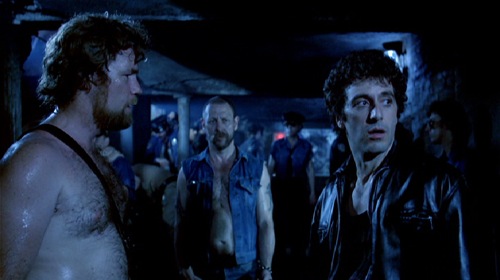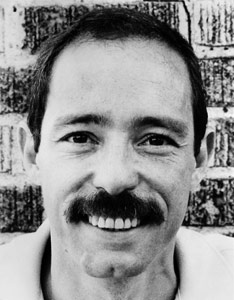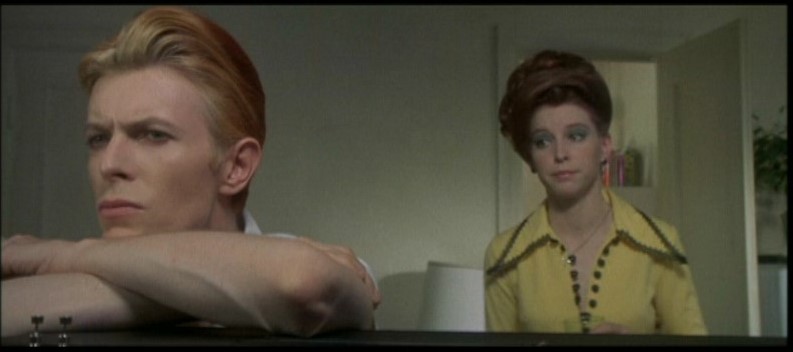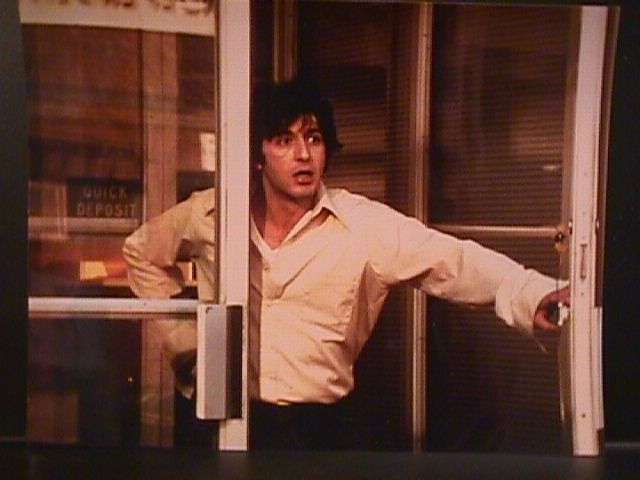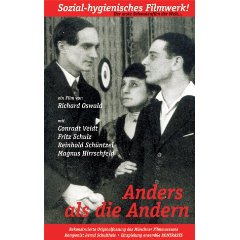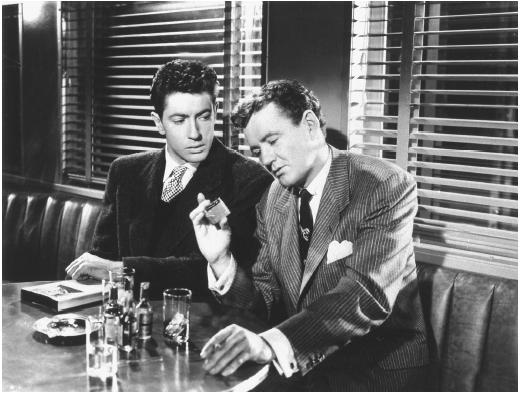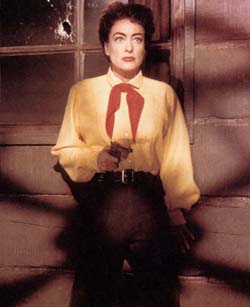From The Soho News (August 4, 1981), very slightly tweaked on January 27, 2010. –J.R.
The Celluloid Closet:
Homosexuality in the Movies
By Vito Russo
Harper Colophon Books, $7.95
Want to read the first comprehensive study in English of homosexuality in the movies? Go hunt up Parker Tyler’s Screening the Sexes (1972). Prefer a more theoretical and political, less coterie-oriented approach? Try Richard Dyer’s first-rate Gays and Film (1975), which includes Caroline Sheldon on lesbians, Dyer on stereotyping, and Jack Babuscio on camp. Like something even more up to date, dealing with the “textual incoherence” of recent Hollywood movies like Cruising and Looking for Mr. Goodbar from a gay lib perspective? Check out Robin Wood’s interesting and fruitful article (no pun intended) in the current issue of Movie.
Where does this leave Vito Russo’s serious and ambitious The Celluloid Closet — which incidentally bears the same subtitle as Tyler’s book? Not so much in the lurch as the above list may imply. As the best researched and illustrated book on the subject — entertainingly and intelligently written in epigramatic journalese, and clearly backed up by years of patient fact-finding and interviewing — it deserves to be considered a significant reference point and a source of reference in the years to come.
As sustained argument or comprehensive survey, it is rather less impressive — representing different successive stages of an evolving position which curiously coexist in the same present tense of Russo’s writing, and omitting works as variously relevant as The Bitter Tea of Petra von Kant, Bitter Victory, Celine and Julie Go Boating, Conversation Piece, Daughters of Darkness, I’m Not From Here, Ivan the Terrible, Orpheus, The Outlaw, and the collected works of Werner Schroeter and Carmelo Bene. But don’t get me wrong, as Sidney Skolsky likes to put it. As a straight moviegoer who is more than a little perturbed about the ravages of Hollywood on my sexuality, I don’t doubt that Russo has plenty of good reasons of his own to be steamed about media censorship, evasion, and distortion — which provides much of the best of his book, and helps to explain the negativity of his title.
What I’m a little less certain about is Russo’s estimation of what movies should be doing in relation to gays — which is where his argument tends to break down into discrete and inconsistent micro-units, some more persuasive than others. Most of this problem, I think, reflects Russo’s economics and aesthetics more than his sexual politics — a pragmatic contradiction he seems to share with Stuart Byron, whereby a leftist stance and an overall piety in relation to the capitalism of the film industry make for strangely compatible bedfellows.
There are the parts that chronicle the equivalents to Baby’s First Steps in the treatment of gays in film. (The Laughing Policeman contains “the first acknowledgment in a commercial film” that a gay lib movement “existed in America”; Norman, Is That You? “may have be the first progay fag joke”; the first TV show to portray gays was NYPD in 1967.)
Then there are the parts that convincingly argue it is useless to expect more than an “acceptable lie” from Hollywood: “Clearly, commercial cinema is only an amusement park; films that speak to gay women and men must come from the independents.” “To ‘ask’ Hollywood for anything is a waste of time for any minority group; to ask that a reflector of society show lesbian and gay men as being part of rather than outside the social norm when they have not yet become a visible part of it is unreasonable.”
Then there are the isolated overstatements: “America hated Sunday, Bloody Sunday“; with the exception of only three movies — Five Easy Pieces, The Man Who Fell to Earth, and A Perfect Couple — “American cinema was unable to portray gay characters without their being sex-obsessed or sex-defined”. Dog Day Afternoon “failed to touch” the lives of Middle America (lots of territory being covered here), but “you can like or dislike the lesbian characters in Manhattan” — Vito says it’s okay — “because Woody Allen is neurotic for a living, and Manhattan is a great film” (no explanation offered).
“The movies await permission from the world-famous general public before they will portray gays as a fact of life,” Russo rightly complains (perhaps prior to the release of La Cage aux Folles), but there are times when he appears to be awaiting permission from both the general public and gay lib before portraying film as a facet of art rather than of sociology, commerce, or cosmetics. Whatever one’s biases about art, anyone who considers Woody Allen more significant in relation to Russo’s title than Sergei Eisenstein — who isn’t mentioned once, not even in the filmography — can’t be losing much sleep over the matter.
But in the land of the sometimes trivial, the witty are king, and some of this book is very sharp and funny to read. There’s the intertitle gleaned from John Ford’s silent Three Bad Men in which “the grizzly ‘Bull’ (J. Farrell MacDonald) tells a fancy Dan who says he has just reached manhood, ‘Then you’d better reach again.'” There’s the ingenious response of Holly Woodlawn to a talk show host’s exasperated query, “What are you? Are you a woman trapped in a man’s body? Are you a homosexual? A transvestite? A transsexual?” “But, darling,” Woodlawn rhetorically counter-queried, “what difference does it make as long as you look fabulous?”
Russo seems most at ease when he’s working in short takes, and two of the most enjoyable parts of The Celluloid Closet are the appendices — a filmography including one-liners about and/or classifications of more than 300 movies and a mordant “necrology” of 33 gays condemned to die by movies, ranging chronologically from Conrad Veidt in Anders als die Anderen (Different from the Others, 1919 — suicide by poison) to Robert Christian’s transvestite in And Justice For All (1980 — suicide by hanging).
“Sex is the great leveler, taste the great divider,” Pauline Kael wrote in the early 60s. I wonder if she’d hesitate at all before writing the same sentence today, when sex has become more a matter of taste, and taste is often merely a rationalization for sexual preferences. Russo is adroit and provocative when he offers an auteurist reading of James Whale’s horror films (buttressed by a pungent personal quote about the director’s gayness from Robert Aldrich), and alert to the nuances of Robert Walker’s matching performances in Strangers on a Train and My Son John.
But I feel that he needlessly stereotypes some of my gay friends when he says that Nicholas Ray’s beautiful Johnny Guitar “features a butch Joan Crawford and an even more butch Mercedes McCambridge in a series of confrontations that keep present-day audiences howling,” and misses the point when he praises The Rocky Horror Picture Show in isolation from the live contributions of its cult audience (whose existence is acknowledged, but whose nature and meaning are disappointingly skimped). On the other hand, it’s hard to feel anything but grateful for a book that preserves for posterity Peter Finch’s reply to the London Times reporter who wanted to know how he could bring himself to kiss another man onscreen in Sunday, Bloody Sunday: “I just closed my eyes and thought of England.”
—The Soho News, August 4, 1981

